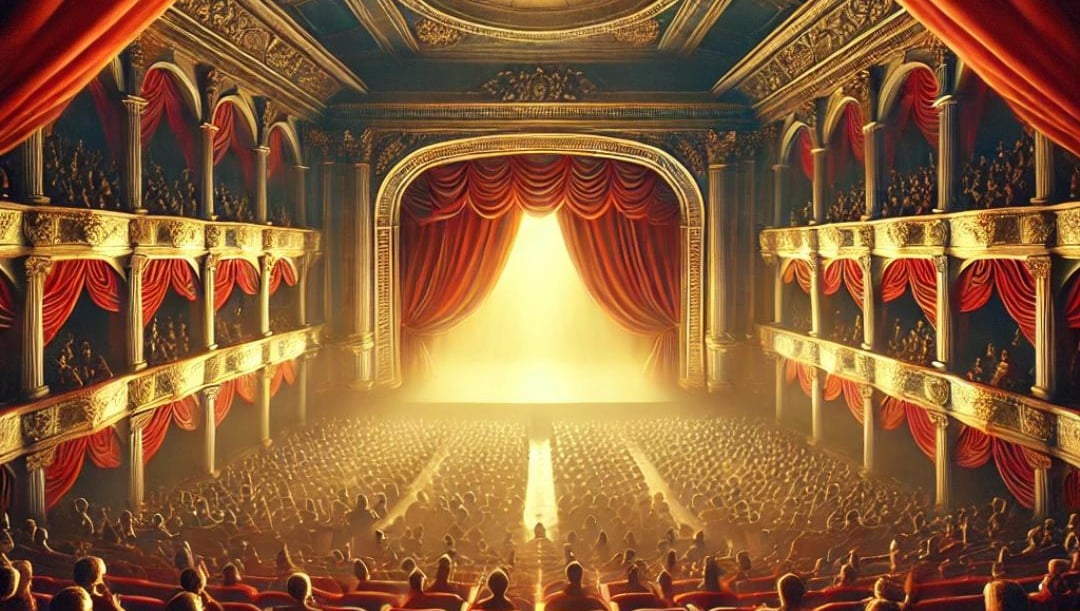Strategizing from 7 cities across the globe
Performative Democracy: The Spectacle of Modern Politics
In a world where politics now share the stage with popular TikTok dances and celebrity scandals, democracy is having its moment- but not the kind that inspires admiration. It is the kind that trips over its own shoelaces in front of a live audience
CIVIL SOCIETYDEMOCRACYJOURNALISMPOLITICSSOCIAL MEDIA
Lynn Nader
2/6/20254 min read


In a world where politics now shares the stage with popular TikTok dances and celebrity scandals, democracy is having its moment - but not the kind that inspires admiration. It is the kind that trips over its own shoelaces in front of a live audience. When we think of politics and democracy, we think of a noble system where policies are debated, and leaders are held accountable for their actions. Unfortunately, democracy today has become theatrical, feeling less like proper governance and more like a play competing for prime-time ratings. Elections look like reality TV shows, where political debates are now more about charisma than true substance. From Donald Trump’s entertaining rallies to Boris Johnson’s eccentric public persona, it seems that the louder the personality, the more attention it garners, resulting in scandals that keep them in the headlines. The days of Lincoln’s solemn speeches or Churchill’s inspirational talks are gone, leaving us to question what this means for the future of democracy. Are we witnessing some kind of decline in democratic values, or is this just a new chapter in the different forms of political engagement?
Consider the recent presidential debate between Kamala Harris and Donald Trump. If you haven’t tuned in on the debate, here’s a quick overview. While some policies from immigration to gun control were discussed, most of the debate consisted of incessant and childish attacks between the two candidates. Proper discourse was overshadowed by Harris labeling Trump as weak and ineffective while Trump tried to paint her as an extremist and a far-left radical. If you missed it, it is safe to say that the debate - and the entire selection - was more about who could land the next punchline than about meaningful policy discussions. This performative democracy isn’t entirely the politicians’ faults; Gen Z and modern audiences are less interested in governance and more interested in scandals and drama. Social media algorithms, especially TikTok, cater to spectacles and entertaining politics rather than meaningful discussions about policies and progress. The public eagerly approached the rallies and debates with memes being created, commentary flooding social media, and twitter having a field day. Politicians are simply catering to the modern watchers of the world, but amidst these laughs, it is pivotal to ask: is this what we expect from our leaders?
Take Nixon’s Watergate scandal for instance. The public lost faith in the government and in politicians, forcing Nixon to resign after the extreme level of backlash. Watergate became a term commonly used for political scandals. However, comparing that to Trump’s 34 felony charges, which many people seem to disregard as though he is merely a child being punished. A country that has been designed with laws to protect citizens from men like Trump have now elected him to lead it. This isn’t just about charisma; it’s about crafting an image that sticks. Think of Boris Johnson, for example, who gained some popularity for his deliberately messy hair - an image designed to portray him as a relatable, down-to-earth person. Adding to that, we could look at Trump’s “outsider billionaire” brand which turned him into the brash, anti-politician who’d “shake things up”, even if his policies contradicted his persona most of the time. It’s all theater, with voters as the audience. But while we’re all busy laughing at memes and reposting campaign videos, we may be overlooking very critical details. Their performance distracts us from the policies (or the lack of them), leaving us to realize too late that governance isn’t as entertaining as the campaign promised and that democracy isn’t supposed to be binge-worthy.
Social media has turned politics into a stage where the performance matters more than the plot. A prominent example would be Ted Cruz, whose controversial trip to Cancun during a Texas winter storm became a viral sensation as his constituents were suffering at home. This led many to joke that he was on a mission to find out if the margaritas were better than his policies. Politicians like Cruz find themselves in the spotlight many times due to their behavior and antics rather than their accomplishments. How could we forget Vladimir Putin’s shirtless horseback riding and his carefully staged "man of the people" photoshoots, which quickly became international sensations? At some point, even Justin Trudeau’s socks seemed to spark more conversation than his policies did. Although this view resonates with most younger audiences and the way they see things, it’s crucial to recognize the influence of youth, given their large share of the population. After all, we can clearly see politicians continue to prioritize engaging their younger audiences, possibly at the expense of the older generation’s support.
Democracy was never meant to stir up excitement in the same way a new Kevin Hart comedy special does. Yet here we are, with younger audiences eagerly waiting for Trump’s next joke or rash act, while the older generations watch anxiously, likely having a near stroke at the mere mention of another “rigged election”. Sure, all of this is entertaining, but what happens when the curtain falls? Over time, it’ll be Watergate all over again; people will lose trust in the system and lose faith in their leaders’ ability to deliver real, meaningful solutions. Maybe it’s time for voters to demand less theater and more governance. While we might enjoy the spectacle now, we will be the ones paying the price when the joke is on us.
